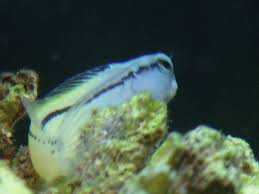
**Introduction**
Tomatoes, known for their vibrant color and rich flavor, spark curiosity about their nutritional value for our feline companions. In this article, we explore the potential nutrients in tomatoes and whether they can offer any health benefits for cats.
**1. Nutrient Profile of Tomatoes**
Tomatoes boast a diverse nutrient profile, containing essential vitamins and minerals:
– **Vitamin C:** Tomatoes are a rich source of vitamin C, known for its antioxidant properties that support the immune system.
– **Vitamin A:** Essential for vision and skin health, vitamin A is present in tomatoes in the form of beta-carotene.
– **Potassium:** A crucial mineral for maintaining proper hydration and supporting cardiovascular health.
– **Fiber:** Tomatoes contain dietary fiber, which can contribute to digestive health in cats.
**2. Potential Health Benefits for Cats**
While cats have specific dietary needs, the nutrients in tomatoes may offer some potential health benefits:
– **Antioxidant Support:** The presence of vitamin C and other antioxidants may contribute to neutralizing free radicals in the body, supporting overall health.
– **Immune System Boost:** Vitamin C is known for its immune-boosting properties, which can be beneficial for cats in maintaining a robust immune system.
– **Hydration Support:** The water content in tomatoes can contribute to a cat’s overall hydration, especially if they enjoy the occasional nibble on ripe tomatoes.
– **Digestive Health:** The dietary fiber in tomatoes may aid in promoting healthy digestion in cats, although their primary source of fiber should be from cat-friendly foods.
**3. Cautionary Considerations**
While tomatoes offer potential nutritional benefits, it’s crucial to approach their inclusion in a cat’s diet with caution:
– **Solanine Content:** Tomatoes contain solanine, which, in large amounts, can be toxic to cats. Avoid green or unripe tomatoes and any parts of the plant.
– **Allergic Reactions:** Some cats may be allergic to tomatoes, leading to adverse reactions. Monitor for any signs of itching, swelling, or respiratory distress.
**4. Consulting with a Veterinarian**
Before introducing tomatoes or any new food into a cat’s diet, it’s advisable to consult with a veterinarian. Veterinarians can provide personalized advice based on the cat’s specific nutritional needs, health status, and potential sensitivities.
**5. Conclusion: Moderation and Veterinary Guidance**
In conclusion, while tomatoes contain valuable nutrients, their inclusion in a cat’s diet should be approached with moderation and careful consideration. The potential health benefits, such as antioxidant support and immune system boost, should be balanced with caution regarding solanine content and possible allergic reactions. Consulting with a veterinarian ensures that any dietary additions align with the well-being of our feline friends.









